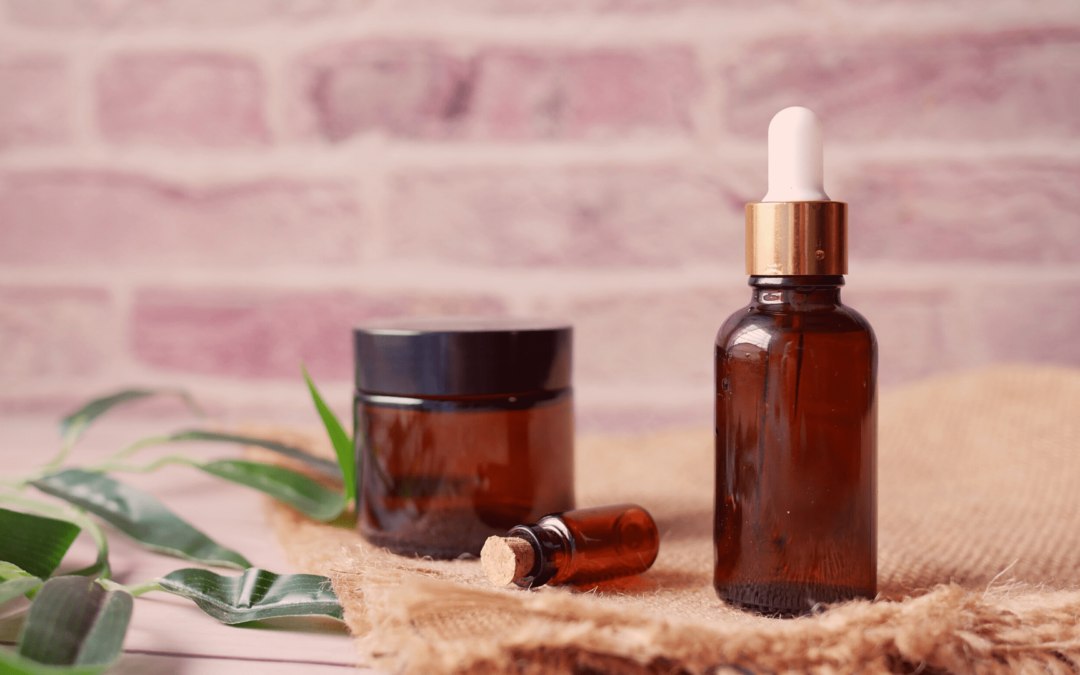We have been using essential oils for centuries, dating back to early references of Frankincense and Myrrh in the bible. We still use them today with many options to choose from, each with its unique scent and properties.
What Are Essential Oils?
Essential oils are aromatic materials extracted from plant leaves, flowers or roots through distillation. Essential oils have a variety of uses as scents in consumer or natural products. It also promotes health by improving digestion and reducing stress and anxiety.
Aromatherapy is an effective method of reducing anxiety and involves the use of essential oils to promote well-being.
What Essential Oils Can Reduce Anxiety?
Valerian
Valerian comes from the roots of the plant valerian and has a bold earthy, woody, musky scent. It also has a mild sleep-inducing effect on the body that promotes sleep and calms nerves.
A 2020 study on valerian found positive outcomes when used as a supplement for anxiety.
How to use it – add a few drops of Valerian oil to an aromatherapy diffuser and inhale it. You’ll start to feel relaxed and sleepy. In addition to its use for sleep and anxiety, valerian helps with headaches, trembling, and heart palpitations.
Lavender
Lavender is a popular essential oil for aromatherapy with a sweet floral scent and a herbal, woody undertone.
Lavender oil can calm anxiety or feelings of stress and induce sleep. A study in 2012 found lavender impacts the limbic system, the part of the brain that controls emotions. In addition, a 2019 review found inhaling or massaging with lavender oil significantly lowered anxiety levels.
How to use it – add several drops of lavender oil with almond oil, jojoba oil, or unscented bath gel into a warm bath. You can also massage it into your skin as a skincare regimen for eczema, acne, and burns. Lavender oil also helps ease muscle pain and headaches.
Jasmine
Jasmine oil has a sweet floral scent often used in cosmetics and perfumes. It’s also sometimes a base of different types of tea. A 2013 study found inhaling jasmine oils promotes a sense of well-being and romance.
The research found lower doses of Jasmine extract on rats significantly lowered anxiety. However, unlike most essential oils, jasmine oil calms the nervous system without inducing sleepiness.
How to use it – You can inhale jasmine oil directly from the bottle. Or add a few drops to a tissue/cloth/pillowcase as you sleep. You can also add it to a scent diffuser in your room. Jasmine is also used to regulate your mood and as an aphrodisiac.
Tulsi/Holy Basil
Tulsi comes from the same basil family used to cook lasagna. It contains eugenol and has a spicy, minty aroma.
Research proves tulsi can treat physical and mental stress. A 2017 study found a 31 – 36% decrease in stress-related symptoms in some individuals.
How to use it – The eugenol in tulsi has a powerful fragrance, so you only need a little. You can add a few drops of tulsi oil to an aromatherapy diffuser and inhale it as it’s diffused throughout the room. Tulsi is also helpful for coughs, digestive problems, inflammation, or arthritis pain. It also reduces blood glucose and cholesterol.
Sweet Basil
Sweet basil has a crisp herbal scent and helps calm the mind and relieve stress through aromatherapy.
Most studies on Sweet basil and aromatherapy are based on animals but have proven to relieve anxiety and induce sleep. A 2018 study found Sweet basil to have an antioxidant and anti-inflammatory effect on the mice, in addition to reductions in anxious behavior.
How to use it – Add a few drops to a diffuser or inhale it through an inhaler tube. Sweet basil can also improve digestive issues, skin, pain, or inflammation.
Bergamot Oil
Bergamot Oil has a citrus scent extracted from the peel or zest of the fruit. Bergamot is like a hybrid of a lemon and bitter orange. It’s a popular ingredient in perfumes also used as a herb in Earl Grey Tea.
A 2015 study found bergamot oil to have a calming effect, reducing anxiety and improving the mood of participants. In a separate study, researchers found that 15 minutes of exposure to bergamot essential oil promoted positive feelings among women of a mental health treatment center.
How to use it – bergamot can increase your skin’s sensitivity to the sun while used topically. So take caution when going out in the sun. You can, however, add a few drops of bergamot oil to a ball or handkerchief and inhale it two or three times to relieve anxiety. Bergamot oil can also ease pain and inflammation and lower cholesterol, in addition to having antimicrobial properties.
Chamomile Oil
Chamomile oil comes from the flowers of the chamomile plant and closely resembles daisies. Did you know it has mild sedating properties and a relaxing effect? It’s a popular ingredient in herbal teas used to promote peaceful sleep.
A 2017 study found chamomile supplements reduced mild to moderate Generalised Anxiety Disorder (GAD). However, it didn’t reduce the rate of relapse of anxiety symptoms.
How to use it – You can massage diluted chamomile oil into your skin or add it to a warm bath. It’s important to remember not to overdo the oil since it’s potent. Chamomile oil can also help with digestive issues, healing wounds or ulcers, and easing pain and inflammation.
Frankincense oil
Frankincense oil has a sweet musky aroma and comes from the resin of the Boswellia Tree. It’s popular from stories in the bible and historically used as an essential oil.
A 2020 study found frankincense oil reduced anxiety in women in labor. It’s also proven to manage stress and reduce anxiety.
How to use it – You can massage diluted frankincense oil onto your hands and feet or add it to a diffuser. Frankincense essential oils also help ease inflammation due to arthritis and may help with symptoms of inflammatory bowel disease.
How Are Essential Oils Used?
There are multiple ways you can use essential oils, for example;
Aromatherapy
Aromatherapy is popular for anxiety because it triggers emotional responses from our sense of smell. You process a lot of information through your sense of smell, so when you inhale essential oils, molecules in your nasal cavity stimulate a mental response in the limbic system of your brain (responsible for emotional processing and memory recall). These simulations regulate stress and create a calming response from your heart rate, breathing patterns, hormone production, and blood pressure.
Aromatherapy can be obtained by
1. Direct inhalations – this is the easiest method. You can open the bottle of essential oil and inhale it directly without letting it touch your skin.
2. Hot water vapor – you can add a few drops of essential oil to hot water and inhale the steam while trapping it inside a blanket or towel as you inhale.
3. Dry evaporation – you can also add a few drops of essential oil to a piece of cotton cloth and inhale.
4. Humidifiers – add a few drops of essential oil to the water in your humidifier and as it will naturally vaporize throughout the room.
5. Aromatherapy diffusers – are meant for diffusing essential oils. There are different types like ceramic, electric, candle, lamp rings, reed diffuser, or ultrasonic that have particular instructions for the manufacturer for use.
Oral Application
You can ingest some essential oils, but only if they are safe and pure. Many oils on the market are diluted or blended with synthetics that are unsafe for consumption. The FDA has advised caution when choosing oral application of essential oils and recommends you check the ingredients in the essential oils.
Reports show the most effective way to consume them is to add a drop of oil in a glass of water or a teaspoon of honey. Or you can add a drop or two underneath the tongue. It’s most effective because the blood capillaries are close to the surface tissue under your tongue, allowing the oils to pass quickly into the bloodstream.
Topical Application
Many people prefer the topical application of essential oils. That involves massaging the essential oil on the skin, hair, mouth, teeth, nails of your body. The oils are usually potent and penetrate the skin quickly. For this reason, experts recommend that you dilute and mix it with a carrier oil like jojoba, almond, or coconut oil. You can apply it directly to the affected area, the bottom of your feet, or the rims of your ears using compresses in baths or through massage.
Each of these methods is effective and you can use them based on what makes you comfortable. However, all these methods stimulate your olfactory system (smell), the part of your brain that regulates emotion. It’s one of the reasons essential oils are a natural remedy for relieving stress and anxiety.

